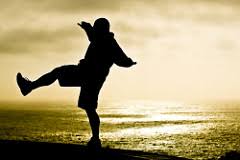By Jackie Render, PT

Vestibular Rehab is used to treat dizziness, vertigo, as well as feelings of being off-balance and unstable, blurred vision, or generally feeling “off.” A vestibular assessment at BodyTech Physiotherapy involves a detailed history, a central nervous system screen (examination of reflexes, cranial nerves, cerebellar tests), vestibular function testing, and balance testing.
What is the vestibular system?
The vestibular system is a sensory organ that lies inside your skull and connects your brain with your inner ear on each side. The vestibular system contains organs that sense gravity as well as organs that sense acceleration (turning, bending, spinning etc.). The brain uses the information from both vestibular organs to determine how the head is moving in space, for postural responses, to stabilize vision, and for balance. It shares close connections with your hearing organs and some conditions may also affect your hearing in addition to the vestibular system.
What are the symptoms of a vestibular problem?
Dizziness from the vestibular system often presents as vertigo – the illusion of movement. A person with vertigo will often feel as if the room is spinning or they are spinning within the room. Other people may describe dizziness or the room shifting or tilting. You do not need to feel dizzy to have a vestibular problem. Many people with vestibular problems will feel off-balance and unstable, or report blurred vision or generally feeling “off.”
What causes dizziness?
 Dizziness can come from many areas. It can be caused by medications, blood pressure changes, the brain, the neck, or from the vestibular system. Approximately 20-30% of the population experiences dizziness in their lifetime, and vestibular disorders account for a large proportion of dizziness.
Dizziness can come from many areas. It can be caused by medications, blood pressure changes, the brain, the neck, or from the vestibular system. Approximately 20-30% of the population experiences dizziness in their lifetime, and vestibular disorders account for a large proportion of dizziness.
Why does it happen?
People experience vertigo due to a change in nerve signals from one or both of the vestibular organs. This change in nerve signals results in a mismatch of signals from one ear compared with the other and change can be a result of many factors.
Some common causes of Vestibular problems are:
- Benign Paroxysmal Positional Vertigo (BPPV)
- Vestibular Neuritis or Labyrinthitis
- Unilateral or Bilateral Vestibular Hypofunction
- Meniere’s Disease
- Vestibular Migraine
Vestibular problems can also be caused by structural changes to the inner ear such as structural defects, autoimmune conditions, blast injuries, as well as aging. Concussions may result in vestibular disorders either through injury to the vestibular system itself, or to the connections it has inside the brain.
It is estimated that over 35% of adults in the United States have a vestibular dysfunction that requires medical attention.
What is vestibular rehabilitation? How can it help?
Vestibular rehabilitation is a proven combination of progressive movements or exercises aimed to address the person’s areas of dysfunction. This is achieved by retraining the brain to maximize recovery or central nervous system compensation. Vestibular treatment is highly individualized and will vary depending on the condition, the presentation, and the individual’s goals.
Exercises for vestibular rehab fall into the following categories or themes:
- Gaze stability – working on the ability to keep your eyes focused with head movements
- Habituation – exercises to help make aggravating movements more tolerable
- Balance – either sitting, standing or while walking depending on the individual’s abilities, to help maximize postural responses
- Maneuvers for BPPV – a series of specific movements to help relocate crystals that may become loose in the inner ear; home exercises may also be required to settle symptoms
As the individual progresses these exercises are often combined together to increase the challenge. A combination of eye, head and body movements, mental activity, or functional tasks may also be added to help make the vestibular responses more automatic.
Why should I have treatment?
Dizziness and imbalance can have a significant influence on quality of life. They can make you feel anxious and isolated. You may feel fearful of falling or of movement bringing on symptoms. Individuals with vestibular dysfunction are often reluctant to turn their head when they are standing or moving. Those with BPPV may be fearful of looking up or lying down because of fear of symptoms. Over time this can lead to neck and upper body pain. If you feel your dizziness or imbalance makes you more cautious with movement, or interferes with your daily life you should consider a vestibular assessment. A vestibular therapist can provide you with information about your condition and appropriate treatment options to help restore your quality of life.
